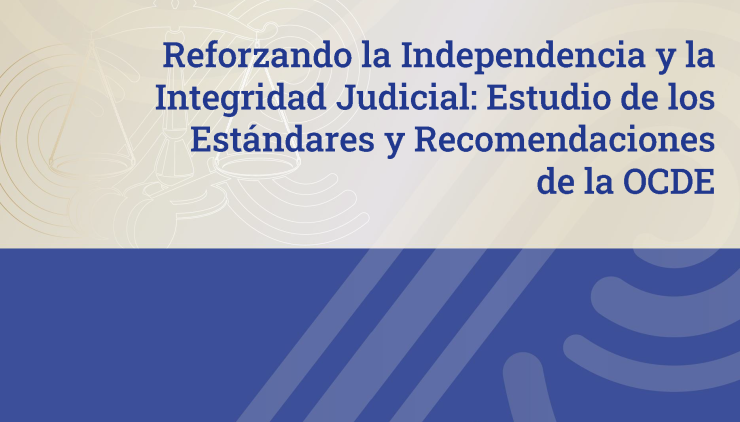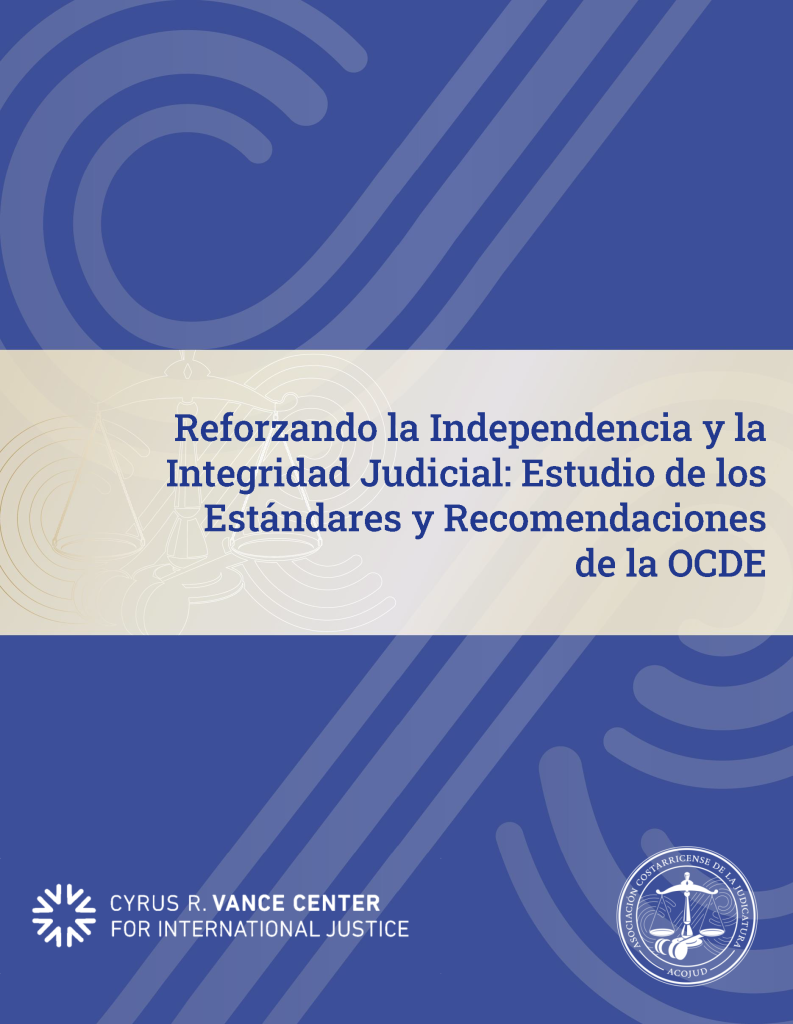With 3 Events and 2 Reports, Vance Center Continues Supporting Central American Judicial Associations
March 2024This month the Vance Center partnered with judicial associations and legal experts to hold discussions and present two publications related to judicial independence in Central America.

On March 5, Vance Center Associate Executive Director Jaime Chávez Alor met with members of the Guatemalan Association of Judges for Integrity (AGJI) to assess and discuss initiatives for the upcoming process to select Guatemala’s Supreme Court and Court of Appeals judges.
Historically, this process has fallen short of international standards for merit-based appointments, often marred by corruption and undue influence. However, the AGJI and other local partner organizations believe that this year presents a crucial opportunity to break that pattern and introduce a transparent and objective selection process. The Vance Center will support AGJI in its efforts to raise awareness about the need for and importance of a fair and impartial selection process.
On March 12, the Vance Center, in partnership with the Central American Federation of Judges for Democracy (FECAJUD), hosted a virtual event on judicial evaluation challenges in the region.
The event offered an opportunity to follow up on previous work on judicial evaluation processes in Latin America. Last year, at FECAJUD’s request, the Vance Center produced a report outlining international standards for effective judicial evaluation systems. These evaluations, which assess a judge’s knowledge and abilities, have implications for professional development, promotions, and open justice initiatives, and are a key part of upholding judicial independence.
The report, published in September 2023, examines relevant treaties and instruments to ensure judiciaries are composed of the most qualified lawyers.
The event, inaugurated by FECAJUD President Judge Haroldo Vásquez, featured a discussion between panelists Carmen Aida Ibarra (Director of Movimiento Pro Justicia, Guatemala), Roxana Arrieta (Head of Human Resources for the Costa Rican Judiciary), and Juan Jaime González Varas (Federal Magistrate, Mexico).
Judges, legal professionals, and civil society representatives from nine countries across the region participated in this discussion, which highlighted the importance of providing judges with research and tools to help them defend their integrity and independence.
Later that week, the Vance Center partnered with the Costa Rican Judicial Association (ACOJUD) for a virtual discussion of relevant Organisation for Economic Co-operation and Development (OECD) standards for judicial governance, independence, and integrity, the subject of another new publication.
In introductory remarks, ACOJUD President Judge Adriana Orocú underscored the importance of this initiative and its innovative approach.
Traditionally, judicial independence is discussed through the lens of international human rights standards. This new report, “Reinforcing Judicial Independence and Integrity,” highlights how OECD standards also emphasize judicial independence as a foundation for legal certainty and economic development, expanding the options for judicial associations to advocate for judicial independence using a broader framework beyond international human rights standards.
The comprehensive report analyzes key standards and recommendations from various OECD instruments in three sections:
- Judicial Governance: Examines how internal judicial structures and procedures impact the rule of law.
- Public Governance: Explores how to protect against external pressure and reduce corruption within broader systems of government .
- Access to Justice: Analyzes methods to effectively safeguard citizens’ right to access justice.
The law firm Linklaters conducted and provided key research for both projects.


